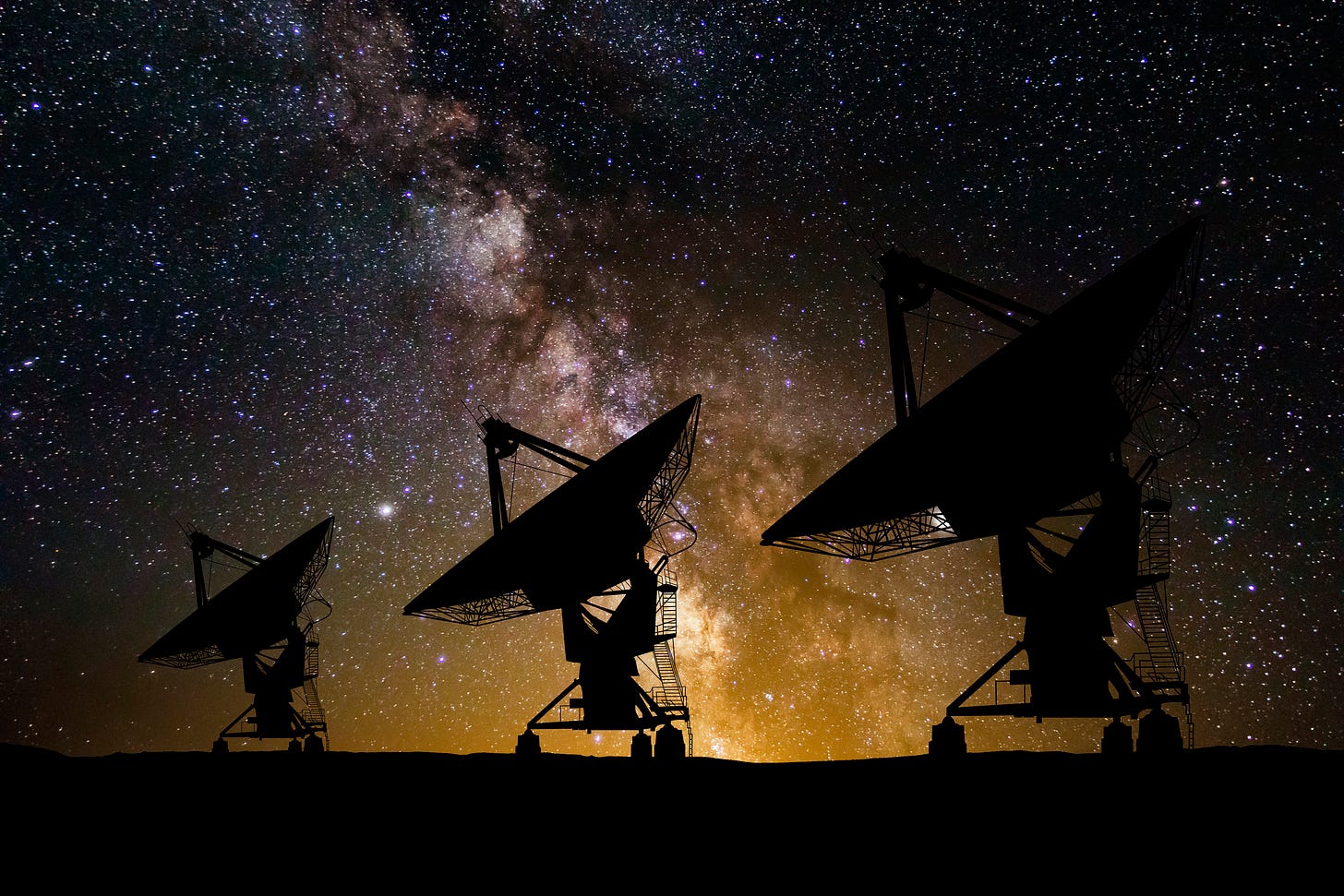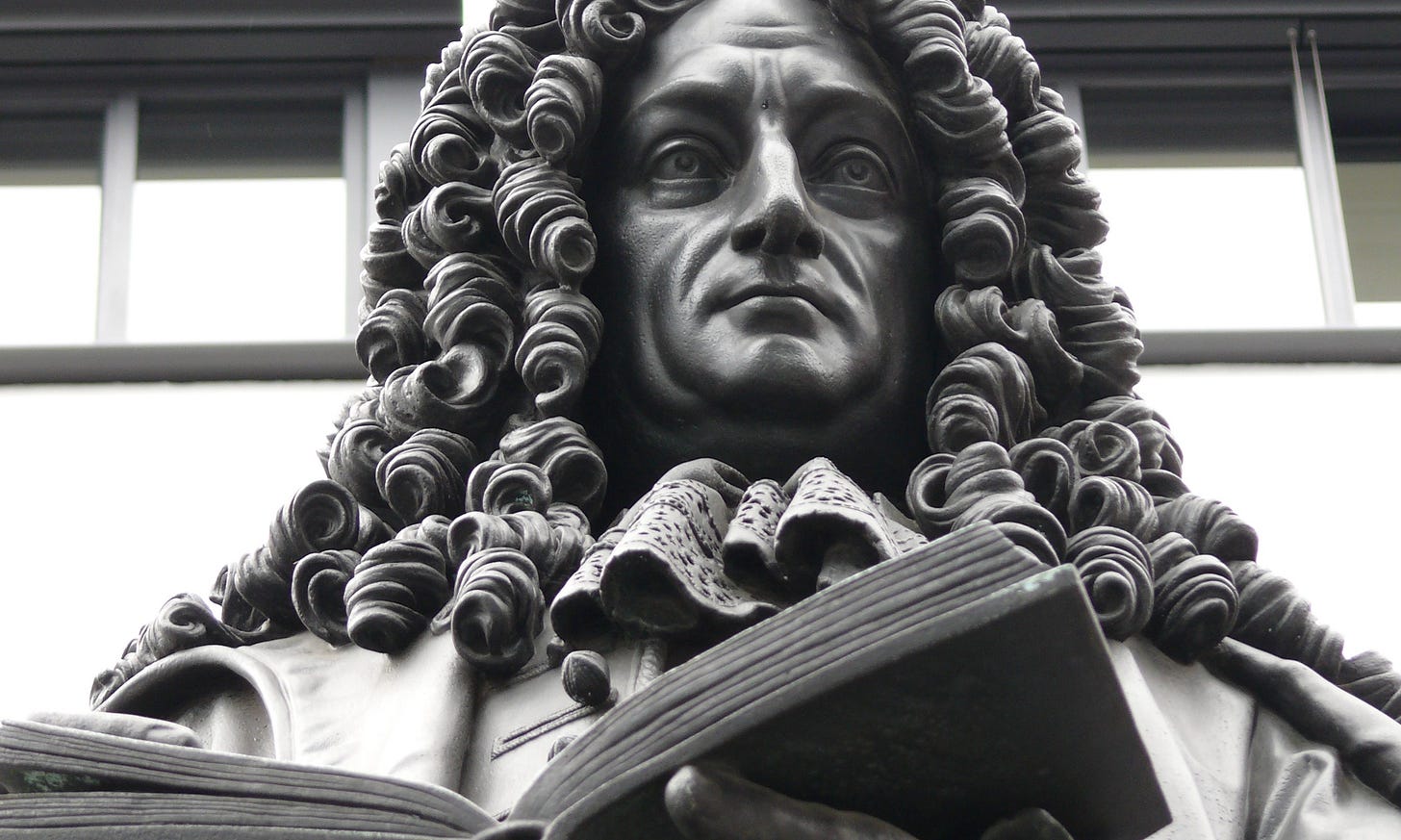Is God Space Or Is Space God?
Newton, Einstein, and the Physicality of God.
The usual translation of the Hebrew Bible begins Genesis 1:1 with the phrase “In the beginning, God created,” but it might be better translated “When God began to create.” What was the first thing created? The heavens and the earth. God, through an act of will, first brings forth space, the place where everything else will occur, and then a planet, an object housing all of the specific locations of the events that will later be described.
Pressing questions about climate change and other environmental concerns make the relationship between God and the earth important, but what about the relationship between God and space? If time is the measure of the rate of change at which things happen in space, then by creating space God would have also created time. As creator of space and time, God must thus exist outside of both. On this standard understanding, God transcends our basic physical concepts.
But this was not the view of the greatest geniuses who wrestled with our basic physical concepts. Isaac Newton and Albert Einstein both thought that there was a crucial connection between God and space, but saw that relationship in converse ways. Newton thought that space is God, but Einstein thought that God is space.
Newton and the Divine Sensorium
In his masterwork, The Mathematical Principles of Natural Philosophy, Newton begins by defining his basic notions, but leaves several undefined as “well known to all.” Among these undefined notions is space. In his appendix to the definition section, he distinguishes between relative space, which is common and determined by the relative positions of bodies, and absolute space which he asserts is true, mathematical, and unaffected by the stuff it contains.
For Newton, space is like an infinite three-dimensional piece of graph paper underneath the universe. It is always flat and things move through it—it never affecting the things and the things never affecting it—but it giving an absolute address to everything at all times.
It is crucial to Newton that absolute space exists. One reason is physical. He needed there to be absolute space and absolute time for there to be absolute motion, that is, whether something is moving at all, with a constant speed, or accelerating. Since force equals mass times acceleration, the existence of physical forces as real things requires there to be a fact of the matter as to whether something is in accelerated motion or not. Without absolute space, his laws would not be universally true.
But there was another reason Newton demanded space by absolute, because God is. God, the standard view goes, is omniscient. God knows everything. How is this so? Newton thought he figured it out. God knows what is happening at every point in space at every moment in time because space is like God’s body. Not that God is material. Space, after all, is not material. But space is God’s sense organ, sort of like God’s physical, but non-material skin. God knows what is happening everywhere because God is everywhere. Space is therefore absolute because God is absolute.
Leibniz’s Universal Mirror
Image: Gottfried Leibniz, matemolivares.blogia.com
Newton’s intellectual arch-enemy Gottfried Leibniz objected to Newton’s absolute space. He argued that if there is no way to tell the difference between two things, then they are not two things, but rather one and the same thing. If two things are completely indiscernible, then you only have one thing.
Leibniz then proposed to look at the entire universe in a mirror. Every object would still be there and in the same relation to every other object. Every event that happened in the real universe would be seen in the mirror universe, but it would all be backward—east turned to west and west turned to east. But your life and the life of mirror you would be indistinguishable. There is no way to tell if we are the real universe or the mirror universe. So, by Leibniz’s principle, they are just different descriptions of the same universe. But if that is true, then space is relative, not absolute.
Newton argued that humans cannot tell the difference between our universe and the mirror universe, but God could. God would look at the mirror and say, “Hey! Who flipped my universe?” Then he would see Leibniz’s mirror and give him that wry Divine grin and say, “Gottfried…I knew I shouldn’t have made you such a rascal.”
Absolute space, according to Newton, then, is a part of God. God is more than space, but space is God.
Einstein’s Warped God
Newton’s theory of space, motion, and gravitation was the most important in human history, dominating physics for 300 years. But in 1905, Einstein formulated his special theory of relativity, giving us new equations of motion. The special theory changed almost everything, but Einstein soon realized that it did not account for gravity and in 1916 produced the general theory of relativity that did.
Gravity is a force unlike any other. Mass can be thought of as gravitational charge, sort of like electrical charge, but there is an important difference. If I have two objects that are electrically oppositely charged, they attract each other. Double the charge on one and you double the attraction. They will accelerate toward each other faster. But if you take two water bottles to the top of a building, one filled halfway and the other filled all the way, and drop them, they will fall at the same rate even though one is twice as heavy. Why does gravity act differently in this way?
Einstein figured out it is because electricity works across space, but gravity works on space. Unlike all the other forces in nature, gravity causes space itself to bend. The heavier the stuff in it, the more it warps. Matter causes space to change its shape and the shape of space causes matter to move along the trajectories it does.
Spinoza’s Logical God
Image: Baruch Spinoza, catholicworldreport.com
Like Newton, this has theological effects. Einstein was asked if he believed in the existence of God, and he famously replied that he believed in the God of Spinoza. Baruch Spinoza was a 17th-century Dutch philosopher and one of the teachers of Gottfried Leibniz. Spinoza was a pantheist, that is, he believed in God, but did not believe in a distinction between God and the universe. God is not separate from the universe, God is the universe. Everything in the universe is a mode of the Divine, an element of the Divine. Further, God is perfect and a perfect thing will be as it has to be because of its own perfection. Hence, God has no free will. God is a slave to logic because logic determines what is perfect and God, as an all-perfect Being, would have to be that way.
Einstein held what he called his “Cosmic Religion” which was in essential ways like the view of Spinoza. Einstein too was a pantheist. He did not believe in what he termed “a personal God,” that is, a God who is human-like with a mind and a will. And like Spinoza, he was a determinist. Things are the way they have to be. They could not be otherwise because they are governed by absolute laws. Where Spinoza took those to be the laws of logic, for Einstein they are the laws of physics. There is a true and complete set of principles that govern and determine what happens.
When Einstein used the word “God,” he often meant all that is. Is God infinite? That, for Einstein, was just to ask if the universe was infinite.
But the theory of special relativity famously concludes that E=mc2, that is, that mass is a form of energy. This means that the picture that Einstein ultimately ends up with in the general theory of relativity is that the universe is a giant field, and everything in it is reducible to field values. As such, everything is a mode of space.
But space is all there is. Space is the sum total of everything, evolving as it must according to the absolute laws. As a pantheist, Einstein thereby holds that God is space.
A Tale of Two Theories
So, we have Isaac Newton arguing that space is God and Albert Einstein arguing that God is space. Newton holding that God is distinct from the universe, but that the universe is a part of God whereas Einstein contends that space is what God is. It is tempting to try to make this an empirical matter. Derive predictions from both theories and test them. Whoever makes the proper prediction gets to tell us of the nature of the Divine.
Of course, it does not work that way. First, because while these two geniuses may have connected their own metaphysical beliefs to their theories, each theory remains consistent with alternate metaphysical pictures. But more importantly, every scientist knows that each new theory is a link in the great chain of knowledge, not the end of it. The 20th-century philosopher Imre Lakatos argued that every theory is born falsified, that is, that no matter how good a scientific theory is, it will someday have to be replaced with a new one. But that may or may not be true of our understanding of God. Is every religion also born falsified? Maybe there is a right conception, or maybe it too must continue to evolve.
Without space, God would not be the God of anything, and therefore seemingly not God at all. So space must connect with the Divine essence somehow. But how? And thus we are left with our original question: how does space relate to God? If Newton is correct that space is God, does that mean for fans of Star Trek that God is the final frontier? If Einstein is correct that God is space, does that mean that mean those circling the neighborhood looking for somewhere to park, are, in fact, in search of God? Or are both Newton and Einstein wrong and God only exists beyond space, transcending the physical, in which case, Newton and Einstein may have to rethink their understanding of the metaphysics of physics.









The angels on the head of a pin are dancing a wild frug.
Space = G-d
G-d = Space
Liebnitz had the correct idea. A table may be a solid object. It may also be comprised of atoms. But for all intents and purposes, we put things on tables. Similarly, we exist in space on our small part of it. We deal with what is happening on our planet. And we wonder about the UAPs and if we will ever conquer that vasty vastness. And some of us worship G-d. G-d is the One-ness of it all. There is no separation. It's not either/or. Look at the equations above. They mirror one another. Frankly, here's a Zen slap, I don't give a damn. For all intents and purposes there are galaxies, stars, planets, vacuum, dust, nebulas....whatever--all part of the One-ness.
During a psychedelic trip, I met someone who asked to see the creation of our universe. They were shown another dimension where an entity was giving a guided tour, like in a museum. In the comments, they explained that in this dimension there was neither time nor space, only a geometry that was an abstract idea that would later give birth to space and time.